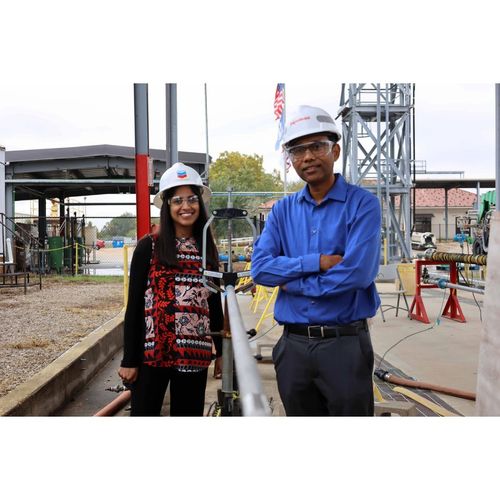LSU professors developing leakage sensors for CCS sites

PHOTO: LSU Media Center
December 13, 2023
BY Louisiana State University
Advertisement
Advertisement
Related Stories
MODEC is Awarded Approval-in-Principle from American Bureau of Shipping for LCO2 Floating Storage and Injection Unit
MODEC has received Approval in Principle from the American Bureau of Shipping for its Floating Storage and Injection Unit (FSIU), designed to handle liquid CO₂ at sea. The unit can receive, store, and inject up to 10 million tonnes of CO₂ annually into subsea reservoirs, eliminating the need for onshore storage and pipelines.
Babcock’s LGE business has secured Approval in Principle from Lloyd’s Register for its ecoCPTR® onboard carbon capture system. The technology combines Aqualung’s facilitated transport membrane capture with Babcock’s ecoCO2® system, offering a compact, modular solution for both new and retrofitted vessels.
PTTEP Moves Forward with Thailand’s First CCS Project at Arthit Field to Advance the National Net Zero Goal
PTTEP has reached a final investment decision on Thailand’s first carbon capture and storage project at the Arthit gas field. With operations expected to start in 2028, the project will capture and store up to 1 million tonnes of CO₂ annually while aligning with the nation’s Net Zero targets.
The U.S. EPA is seeking public comment on a draft permit for Marquis Carbon Injection LLC to store CO₂ underground in Putnam County, Illinois. The project would allow injection of up to 1.5 million metric tons annually over six years, with long-term monitoring to ensure safe sequestration and protection of drinking water.
Chemists at the University of Copenhagen have developed a method to transform PET plastic waste into a powerful new material for CO₂ capture. The material, called BAETA, can absorb carbon emissions efficiently and be regenerated for reuse, offering a scalable, low-energy alternative to existing capture technologies.





